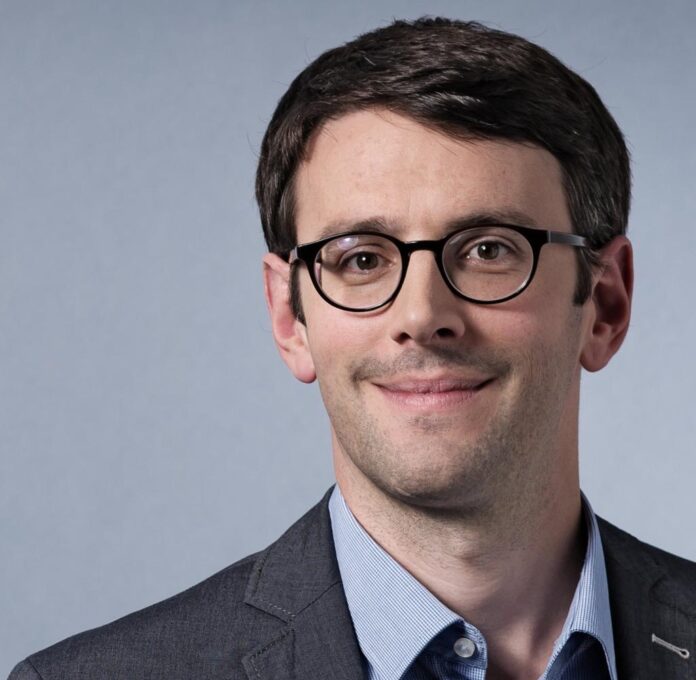In the dispute over exceptions to the already agreed ban on combustion engines in the EU from 2035, Porsche boss Oliver Blume has sided with the FDP. Federal Minister of Transport Volker Wissing demands that in future, in addition to vehicles that do not emit any CO₂ during operation, cars with internal combustion engines can continue to be registered – provided they are fueled with synthetic, climate-neutral fuels, so-called e-fuels.
“We expressly appreciate that the federal government is now taking the appropriate steps,” said Blume at the presentation of the Porsche balance sheet in Stuttgart. The manager, who is also the head of the Volkswagen Group, is considered one of the biggest advocates of e-fuels within the industry.
Such fuels can be made from hydrogen and CO₂ from the air. If green electricity is used as the energy source, the CO₂ emissions during combustion roughly correspond to the previously bound CO₂. The discussion about the use of e-fuels – which has not yet existed in significant quantities – is very emotional. “I would wish that they would fall back on much more expertise there,” said Blume.
Porsche would have a concrete economic advantage from the discussed exception to the EU limits: The 911 model, the flagship of the brand, could “then continue to be offered in Europe with a combustion engine in the future,” said Blume. The company will convert all other series to electric drives in the coming years.
After the purely electric Taycan, an electric Macan will follow in the coming year, then the SUV Cayenne and the 718. Another electric SUV is to be added to the product range at a later date. This model will be even larger than the Cayenne and is primarily aimed at the markets in China and the USA, the Porsche boss announced.
Last year, the sales figures for the previously only purely electric model, the Taycan, fell significantly, from around 41,300 to just 34,800 units. According to the manufacturer, the reason for this was problems with the supply of semiconductors and production downtime because there were no cable harnesses at the beginning of the Ukraine war.
The E-Macan, on the other hand, is two years late on the market because the software for the car from the parent company VW was not ready in time. However, these problems hardly weighed on Porsche’s numbers. The group achieved an operating return on sales of 18 percent; with a turnover of 37.6 billion euros, he earned 6.8 billion euros before taxes. These record values are expected to rise further in the current year.
Blume is sticking to the goal of delivering 80 percent of vehicles as purely electric cars in 2030, despite the e-fuels discussion. “It won’t change anything in the Porsche strategy,” said the manager. In the future, electromobility will be “the superior type of drive for automobiles”. The performance and efficiency of the electric motors still offer a lot of potential – for sports cars significantly more than the combustion engine.
Blume therefore sees the importance of e-fuels primarily in aviation and shipping and in vehicles that are already on the road today. “If you take climate protection seriously, then you have to see to sweeping every corner there,” he said. The production and use of synthetic fuels is far more inefficient than the direct use of electricity. However, production still makes sense in places in the world where there is an abundance of sustainable energy, said Porsche CFO Lutz Meschke.
By using them in these countries, or by adding e-fuels to fossil fuels in Europe, you could reduce CO₂ emissions overall. A tax break for fuel would also encourage investment, says Blume. “All drivers, including those of historic vehicles, will of course be happy to be able to operate their vehicles as CO₂-neutrally as possible with such a solution in the future.”
At EU level, long after the compromise found on phasing out combustion engines, this German debate was met with incomprehension. France’s Economics Minister Bruno Le Maire criticized the exceptions sought by the federal government. “Economically it’s contradictory, industrially it’s dangerous, it’s not in our national interest, it’s not in the interest of our national manufacturers and, above all, it’s not in the interest of the planet,” he said on French radio.
The EU Commission is now looking for an e-fuels regulation that could still persuade Germany to agree. There have already been exceptions to the CO₂ fleet limits for car manufacturers in Europe for so-called small series. This means, for example, sports cars like those from Lamborghini or luxury bodies from Rolls-Royce.
“Everything on shares” is the daily stock exchange shot from the WELT business editorial team. Every morning from 7 a.m. with our financial journalists. For stock market experts and beginners. Subscribe to the podcast on Spotify, Apple Podcast, Amazon Music and Deezer. Or directly via RSS feed.


















